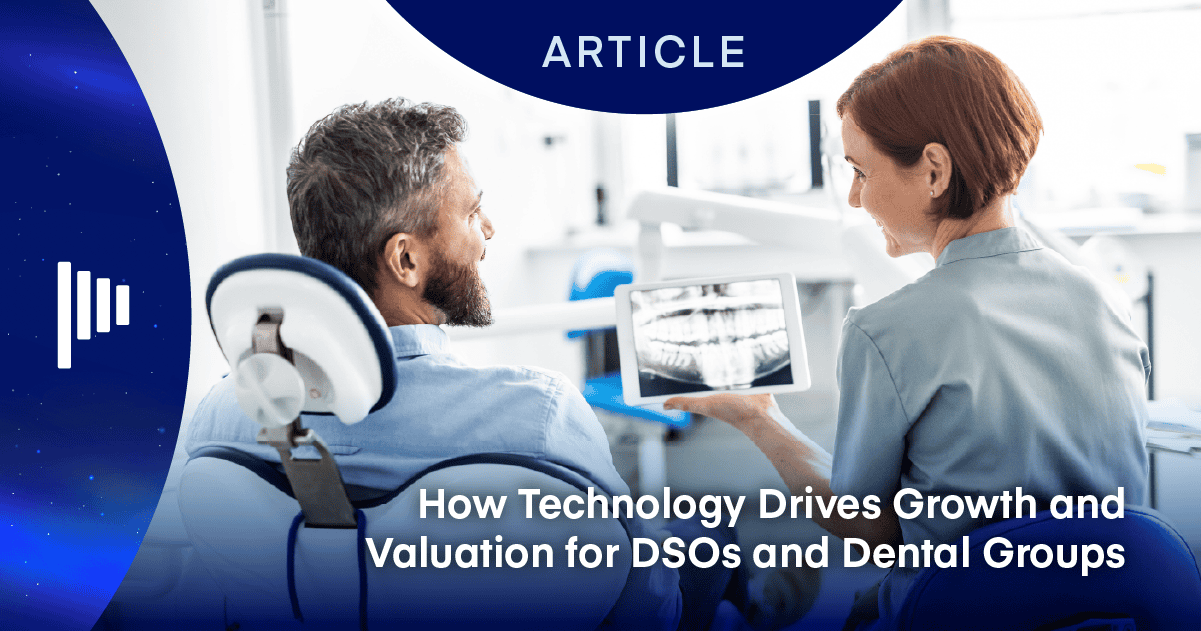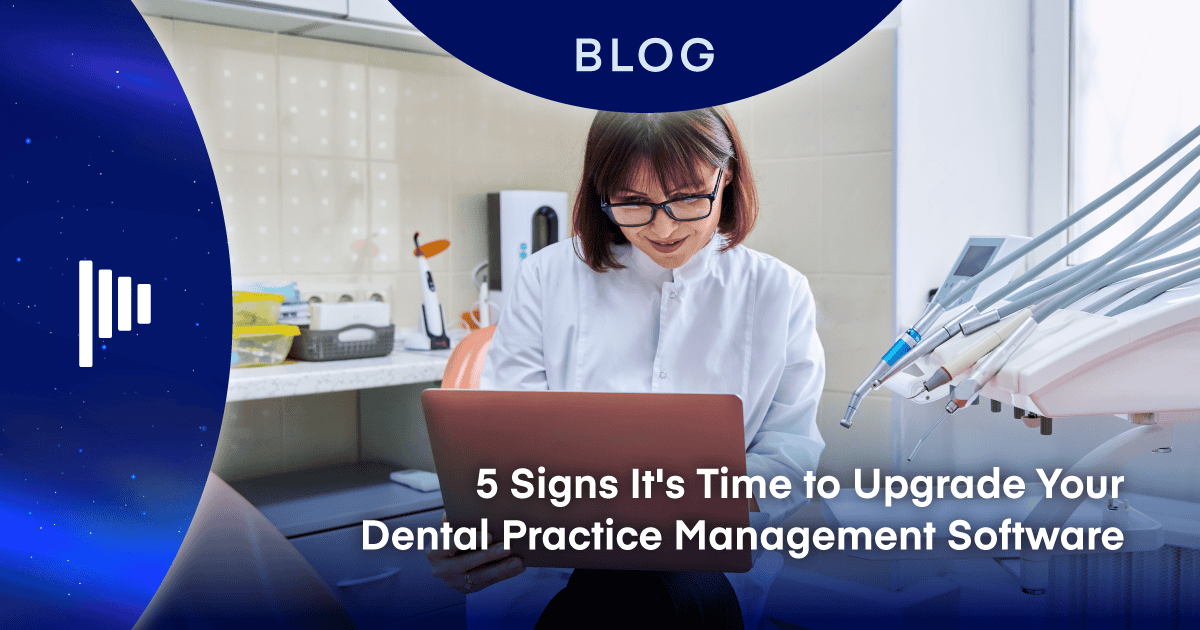How Dental Technology Is Shaping Private Equity Investment

There’s been a seismic shift in private equity (PE) investment in dentistry since interest rates and inflation soared in 2022. Whereas before PE-backed companies grew rapidly through mergers and acquisitions (M&As), now investors are looking to back dental groups focused on same-store growth, efficiency through standardization, and low staff turnover.
Dental support organization (DSO) leaders and industry advisors share how expectations around technology, integration, and operational readiness are influencing deal activity. As financial partners scrutinize long-term scalability more closely, having the right infrastructure in place has become a defining factor in how DSOs and dental groups are assessed.
How Private Equity Firms Are Evaluating Dental Groups
As private equity firms evaluate new opportunities, they’re placing more emphasis on operational structure and long-term potential. Profitability still matters, but it’s no longer the only marker of a strong investment.
“The current market environment is driving a return to fundamentals, and the era of just aggregating EBITDA is over,” said Preston Brice, managing partner of Barclay Hill Partners, a healthcare-focused private equity firm.
Many investors are prioritizing deals where companies have a standardized practice management system, data analytics platform, revenue cycle management (RCM) automation, and patient engagement tools.
“Tech stack standardization is the hallmark of a good organization, and it is a value signal to acquirers,” Brice explained. “In order to drive maximum value, you need to have integration and organic growth in addition to high-quality teams and a proven growth model.”
Standardized Technology Improves PE Valuation
Riccobene Associates Family Dentistry is a fast-growing DSO with more than sixty-five affiliated practices. It was one of the only large dental groups to secure private equity funding in 2024.
“It was obvious throughout our recent quest for a new private equity partner that investors are looking for so much more than profitability,” said Lorri Detrick, president and COO of Riccobene Associates Family Dentistry.
Detrick emphasized how the group’s investment in modern, standardized systems made a meaningful difference in partnerships.
“The value of having standardized technology and operating systems was clear to us. Our primary practice management system [Denticon] and our data analytics tool [Jarvis] provide centralized data, real-time visibility across all locations, and demonstrate operational consistency.
“That level of transparency not only streamlined the due diligence process; it helped us command a stronger valuation. Our infrastructure and standardization signaled that we were ready to scale,” said Detrick.
Why Modern Technology Matters to PE Investors
Having outdated technology impacts healthcare deals outside of the dental industry too. RSM is a leading provider of assurance, tax, and consulting services to the middle market, which generally refers to companies with annual revenues between $10 million and several billion dollars.
One of RSM’s clients made a strategic acquisition, then discovered post-sale that the acquired company’s outdated technology could not integrate with the buyer’s business applications.
“If technology due diligence had been done ahead of close, the client could have negotiated to account for $30 million in upgrade costs or walked away from the deal,” said Jennifer Busse, principal management consultant with RSM.
Preparing for Dental M&A Transactions
While many people were hopeful that 2025 would be the year that private equity investment in the dental industry resumed, experts now anticipate a more substantial recovery in 2026, contingent upon resolving trade issues and a reduction in interest rates.
There are three critical elements for enhancing practice value, said Brian Colao, the director of Dykema DSO Industry Group, a law firm that specializes in comprehensive legal matters affecting DSOs, including mergers and acquisitions.
“You need to cultivate a strong organizational culture to ensure staff retention. You need to foster positive relationships with affiliated doctors. And you need to leverage technology for operational efficiency and growth,” said Colao.
Rick Kes, a healthcare senior industry analyst for RSM, also sees technology and standardization as early value drivers in a deal.
“The benefits that arise through standardization almost always create a positive ROI,” Kes said. “Standardization and building efficiencies through technology is generally the first place we look to help our clients build enterprise value accretion.”
Set the Foundation for Long-Term Success
As private equity firms take a more measured approach to investing, DSOs and dental groups that demonstrate operational readiness, scalability, and tech-driven efficiency stand out. From cloud-based systems to automated RCM tools, the right infrastructure can not only improve internal operations, but it can also signal long-term potential to investors.
Contact Planet DDS to learn how our full suite of dental practice management solutions can help optimize operations, increase transparency, and enhance enterprise value.
Editor’s note: This article was written by Planet DDS and originally published in DrBicuspid.com.



